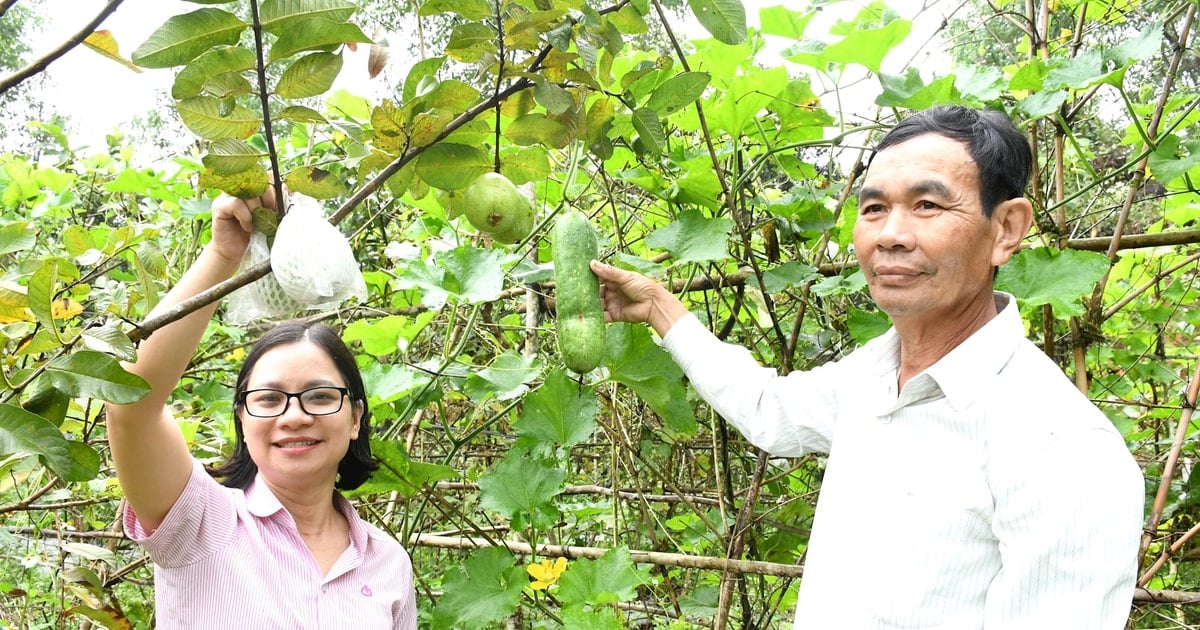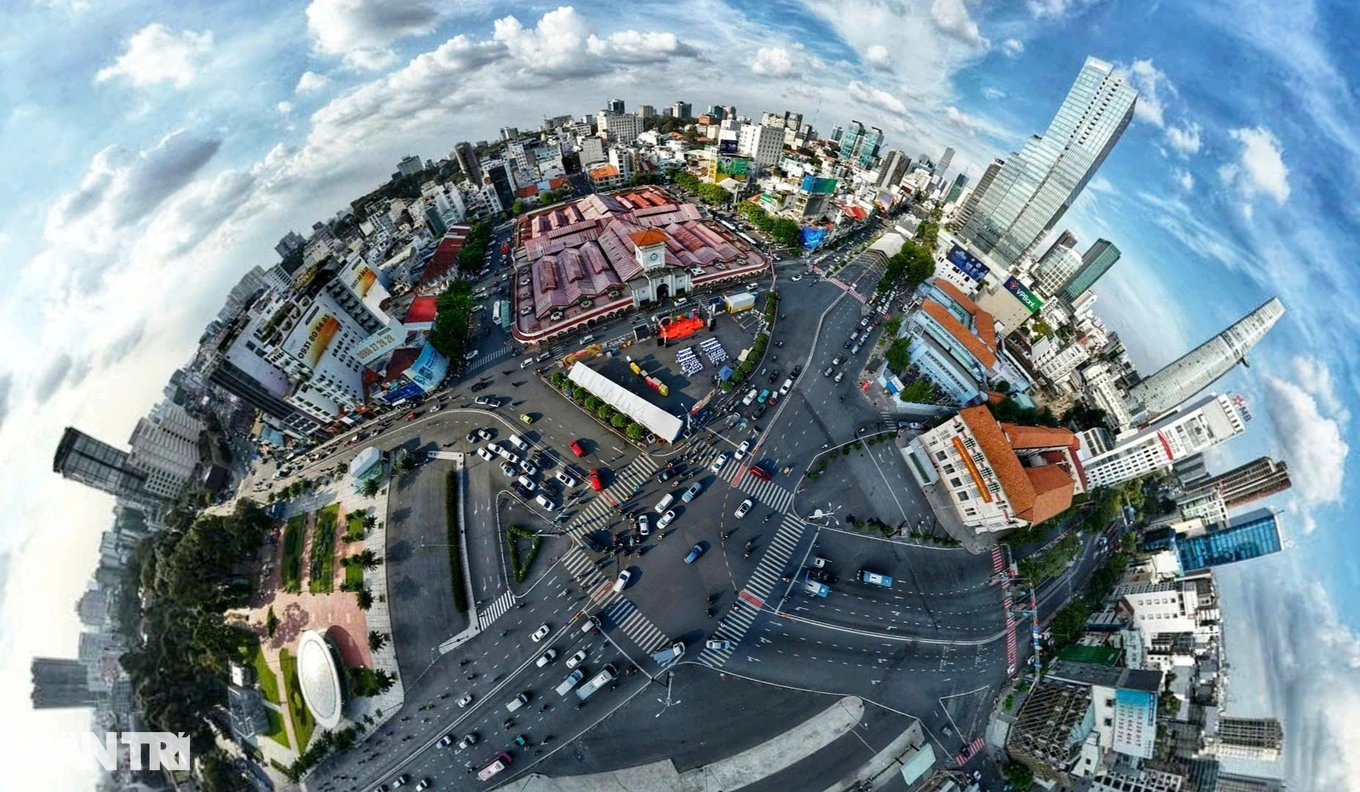
According to data from the State Bank of Vietnam, the number of domestic credit cards in circulation as of March 2024 reached more than 904,700 cards (an increase of 18.37% over the same period in 2023). Domestic credit card transactions in the first 3 months of 2024 reached 1.3 million transactions with a value of VND 10 trillion (an increase of 75.43% in quantity and 89.85% in value).
Deputy Director of the Payment Department (State Bank of Vietnam) Le Anh Dung said that Vietnam has a young population structure, increasing income of people, e-commerce trends, popular digital economic activities, etc. are the reasons why the domestic credit card market has a lot of potential for development. "With more than 900 thousand domestic credit cards while the population is 100 million people, this is a great potential for credit institutions to exploit and promote the issuance of domestic credit cards in the coming time", Mr. Dung affirmed.
Domestic credit card products have many features, utilities, and attractive incentives that are not inferior to international credit cards.
According to Nguyen Quang Minh, General Director of the National Payment Corporation of Vietnam (NAPAS), domestic credit cards have full features such as spending first, paying later, long interest-free period from 45 to 55 days, as well as complying with international EMV safety and security standards; not only widely used for payment at domestic payment acceptance points, online payment, but also used for payment/withdrawal in some countries.
“Domestic credit cards are also an effective way to help people access official loans from banks and financial companies, especially in cases where customers have sudden financial needs, they do not have to resort to black credit loans with high interest rates,” said Mr. Nguyen Quang Minh.
On the other hand, when compared with international credit cards, the fee schedule and interest rates of domestic credit cards are much simpler and lower. According to the Vietnam Banking Association, on average, Master Card and Visa collect about 270 types of fees from a Vietnamese bank each year, while the number of fees for domestic credit cards is much lower.
In addition, the annual maintenance fee of an international credit card ranges from 299,000 to 2 million VND for the common card group, and can be tens of millions of VND for the priority card group; while the annual fee of a domestic credit card usually ranges from 150,000 to 300,000 VND for different card categories.
However, the number of domestic credit cards is still too low, only 8% of international credit cards and 0.6% of cards in the whole market. Current payment turnover only reaches 0.5-0.9% of card payment turnover in the whole market. This turnover is still very low compared to the potential of domestic credit cards.
Although there is a lot of room for development, in reality, the number of domestic credit cards is still very low. Director of the Card Center of the Vietnam Joint Stock Commercial Bank for Industry and Trade (VietinBank) Nguyen Tan Phap assessed that promoting the development of domestic credit cards in the Vietnamese market is facing certain difficulties. For example, the number of joint stock commercial banks participating in the development of domestic credit cards is very limited, and communication, advertising, and promotional programs to attract customers have not been focused on.
Therefore, people still do not have access to the product and its advantages, leading to the number of issuances being low compared to international credit cards. Along with that, domestic credit cards find it difficult to compete with international credit cards in terms of scope of use, international features as well as attractive incentives from international card organizations. Not to mention, due to consumer habits, they tend to prefer international card products because of their popularity and large numbers.
Sharing the same view, Associate Professor, Dr. Dang Ngoc Duc (Faculty of Finance and Banking, Dai Nam University) said that the main reason why domestic credit cards are not attractive is due to factors related to consumer psychology, opportunity costs and financial costs of issuing organizations... Currently, the number of domestic credit cards issued at commercial banks only accounts for one-sixth to one-tenth of the number of international credit cards issued. Fees and interest rates are not a barrier to domestic credit cards, because the prices and fees of domestic credit cards are less and lower than those of international credit cards.
From such an approach, Mr. Dang Ngoc Duc proposed that the research and selection of solutions to promote the use of domestic credit cards in Vietnam should be identified as a key task by commercial banks. The important thing and should be considered a long-term strategy is to consolidate and enhance the reputation of each commercial bank so that the cards issued can be accepted for payment outside of Vietnam, becoming international cards. At the same time, the attention, direction and support of the State Bank of Vietnam and competent authorities in organizing, supervising and supporting the development of domestic credit cards is decisive.
Deputy Governor of the State Bank of Vietnam Pham Tien Dung stated that in the coming time, in order to continue implementing the goal of promoting non-cash payments and developing domestic credit cards, the State Bank of Vietnam will continue to direct credit institutions and related units to effectively implement Decree No. 52/2024/ND-CP on non-cash payments; complete and promptly issue documents guiding the new Decree to create a favorable legal corridor for non-cash payments, support the development of domestic credit cards; at the same time, effectively implement safe and secure solutions in online payments and bank card payments to ensure safety, prevent fraud, and increase user confidence when using electronic means.
“Credit institutions need to research and develop non-cash payment products and services, modern, convenient, and safe domestic credit card products, expand infrastructure, and payment acceptance networks; closely coordinate with relevant parties to promote communications to reach and facilitate people and businesses, especially in rural, remote, and isolated areas, to easily access and use formal banking and payment services, contributing to universalizing comprehensive finance and limiting black credit,” Mr. Pham Tien Dung emphasized.
Source



































![[Photo] Prime Minister Pham Minh Chinh chairs Government Conference with localities on economic growth](https://vstatic.vietnam.vn/vietnam/resource/IMAGE/2025/2/21/f34583484f2643a2a2b72168a0d64baa)





















































Comment (0)